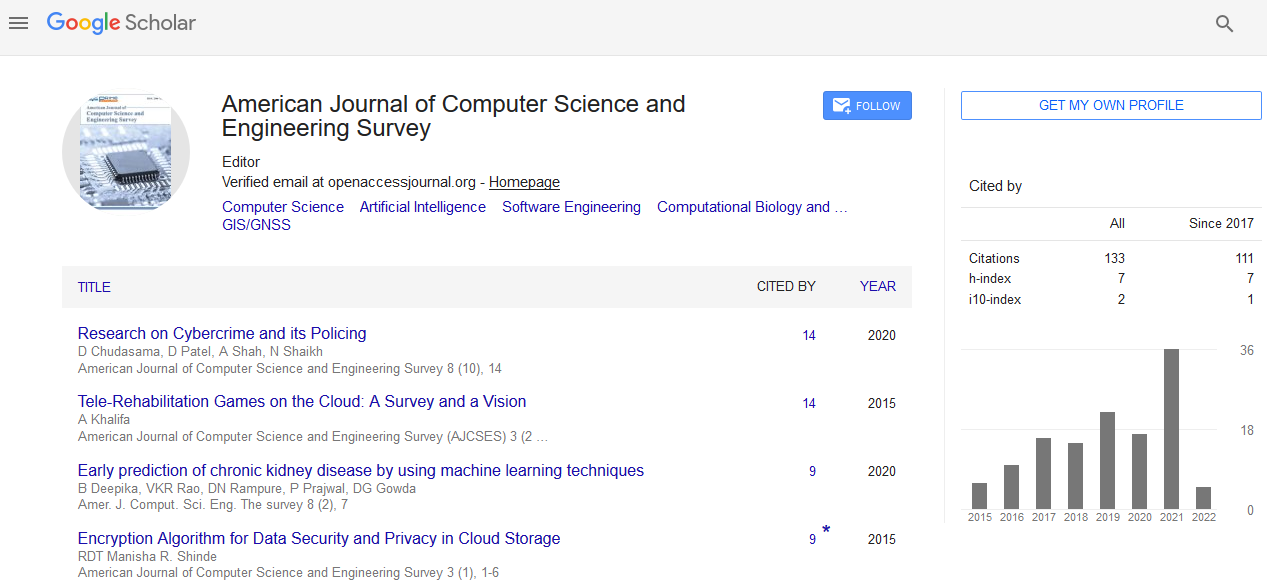American Journal of Computer Science and Engineering Survey Open Access
- ISSN: 2349-7238
-
Journal h-index: 9
- Journal CiteScore: 1.72
- Journal Impact Factor: 1.11
- Average acceptance to publication time (5-7 days)
-
Average article processing time (30-45 days)
Less than 5 volumes 30 days
8 - 9 volumes 40 days
10 and more volumes 45 days

